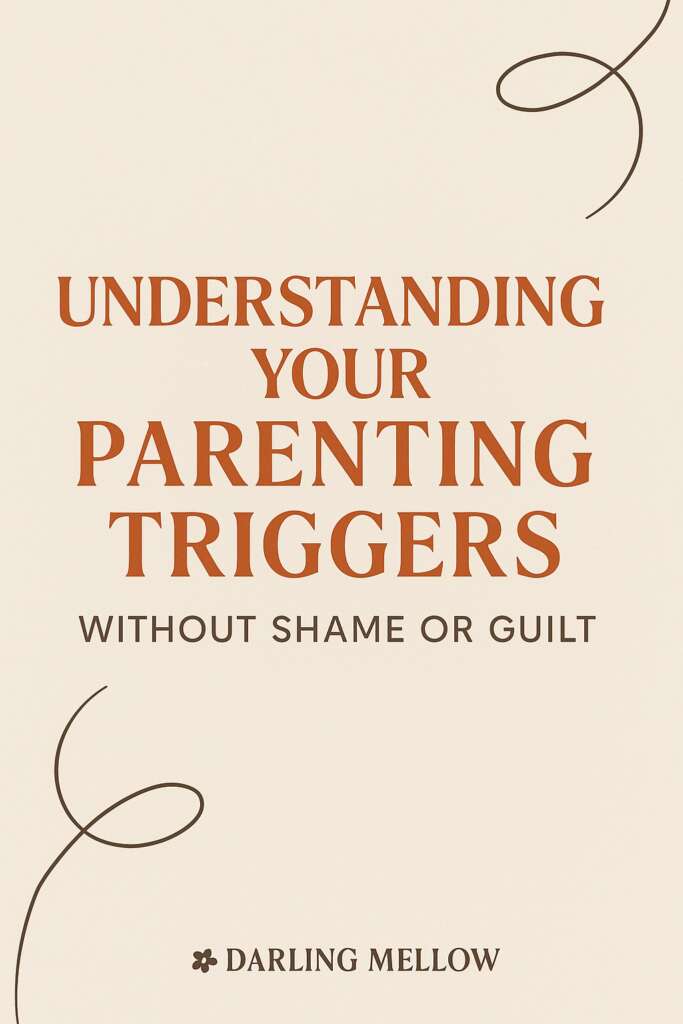What Is a Parenting Trigger?
A parenting trigger is any situation, tone, behaviour, or even look from your child that sets off a strong emotional reaction. It might feel irrational. It might feel shameful. It might feel like something deeper than the moment. That is because it is. Triggers are clues. They point to wounds that were never seen, stories that were never told, and needs that were never met.
🧠 Common Parenting Triggers
- Being ignored or dismissed
- Loud, chaotic environments
- Mess, disorder, or destruction
- Backtalk, defiance, or eye-rolling
- Feeling out of control or unappreciated
Where Triggers Come From
Many of our parenting triggers are echoes from our own childhoods. If we were punished for expressing anger, we might now fear our child’s anger. If we were made to feel invisible, being ignored by our child might feel unbearable. These are not flaws. They are survival strategies from a different time that no longer serve us. These responses often stem from experiences that shaped the way we interpret the world and our place within it. Understanding these roots is the beginning of untangling their power.
🌱 Triggers Often Grow From
- Unmet childhood emotional needs
- Harsh or unpredictable discipline
- Neglect, abandonment, or emotional distance
- Neurodivergence or sensory processing sensitivities
- Chronic stress, trauma, or PTSD
- Parenting without adequate support
How to Respond Instead of React
Noticing your trigger is not failure. It is awareness. And that awareness is the first step to breaking cycles. When you pause, breathe, and get curious about what just happened inside you, you create a moment of possibility. You can repair. You can soothe yourself. You can model emotional regulation for your child. And that matters more than any moment of perfection ever could. Responding instead of reacting helps you build a more connected relationship with your child while also caring for your own nervous system.
🪞 Gentle Response Tools
- Pause and name the feeling silently
- Use grounding techniques like naming five things you can see
- Take a breath while placing a hand on your chest
- Step away from the room briefly if needed
- Later, repair the moment through conversation and connection
How to Reduce the Impact of Triggers Over Time
Healing is not about never being triggered again. It is about reducing how often you feel hijacked by your emotions and increasing how quickly you can return to calm. This might include therapy, journaling, mindfulness, or simply building small supportive routines into your day. Healing looks like feeling less shame when you lose it. It looks like apologising and being willing to try again.
🧰 Tools That Help in the Long Term
- Therapy or coaching with someone trauma-informed
- Tracking your triggers and their patterns
- Learning about your nervous system responses
- Daily self-regulation rituals like breathwork or journaling
- Connecting with other parents who are also healing
You Are Not Broken. You Are Becoming Aware.
Most of us were never shown how to manage triggers. We were told to toughen up or stop being dramatic. So of course, we find it hard now. But here you are, learning. Naming things. Pausing when it is hard. That is growth. That is gentle parenting. And that is enough.
💗 Reminder
- Triggers are not your fault
- Awareness is the first step
- Repair matters more than perfection
- You are allowed to pause and soften
💌 Want More Like This?
Join the Darling Mellow newsletter for weekly soft parenting tools, printable guides, and support that meets you where you are.


